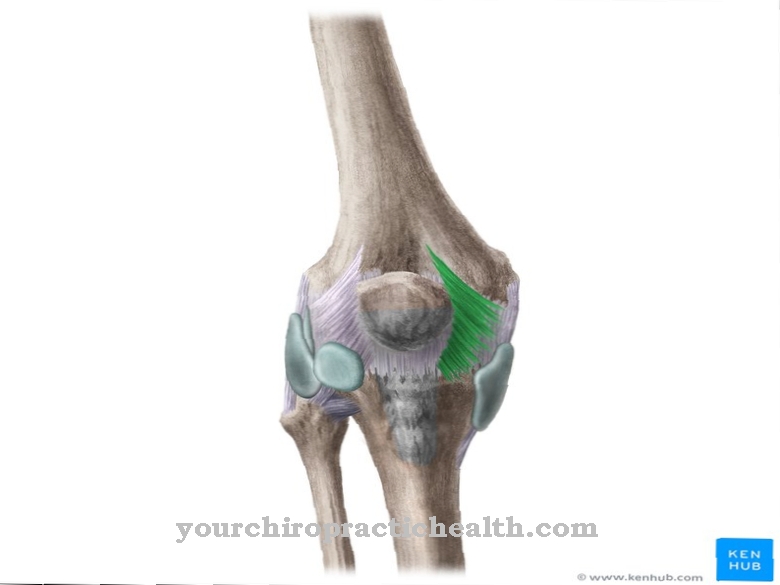As Diseases of civilization Illnesses and symptoms apply whose causes lie in a comfortable and resource-rich social standard.
A lack of exercise, excessive and frequent food intake and an increasingly anonymous environment lead to physical and psychological complaints. In technically less developed societies, complaints of this type occur significantly less or not at all.
What is civilization diseases?
The definition of diseases of civilization refers to the separation between industrialized nations and developing or third world countries. In most cases, technical progress, or "civilization" itself, is not held responsible for the development of so-called civilization diseases. Rather, certain clinical pictures more often and more easily arise from the possibilities and circumstances that the developments bring with them.
The term is not scientifically clearly defined. Both the diseases themselves and some of the suspected influences and causes are assessed differently. However, there is broad agreement on the classification of some influences as risk factors.
In the case of physical illnesses, this includes, among other things, excessive sugar consumption, lack of exercise, overeating, alcohol consumption, excessive hygiene, etc. For mental illnesses of civilization, stress, noise, pressure to perform, certain social norms and the like are almost undisputed factors.
These factors predominate to a disease-causing extent in industrial nations. There is plenty of food there and the daily routine is not necessarily characterized by physical activity. Rising expectations of employees, large cities with so-called "noise pollution" due to high traffic volumes, construction sites etc. and loneliness also lead to mental impairment.
causes
Most diseases of civilization result from unhealthy developments in societies regarded as progressive, which do not occur in this form in less developed countries. Malnutrition, overeating and sugar consumption represent one of the major factors in the development of many diseases of civilization. An unhealthy diet is a great threat, as it can be the cause of a multitude of possible diseases, it appeals to the human sense of pleasure and for convenience and practical reasons can quickly become a habit that is usually difficult to correct.
Many finished or industrially manufactured products contain a large amount of sugar. Sugar is also absorbed through drinks such as lemonades or juices, almost without creating a feeling of satiety.
As a flavor carrier, fat is used in abundance, especially in fast food and finished products. In addition to the risk of tooth decay and diabetes, the likelihood of being overweight increases due to excess calories. This is achieved quickly, especially when the person moves little.
Obesity, on the other hand, can lead to a variety of other diseases: high blood pressure, fatty liver, heart problems, high cholesterol levels, colon cancer, etc. A sedative lifestyle, which is often caused by office work, is attributable to this problem. A large part of the population in industrialized nations spends a lot of time sitting, which, along with a diet high in fat and sugar, quickly leads to an enormous excess of calories.
Apart from that, however, other clinical pictures are also favored by a lack of exercise or incorrect posture. Back problems are among the most widespread diseases of civilization and can go as far as incapacity for work. They can often be improved or eliminated entirely through exercise, but it is often difficult for employees, especially full-time employees, to incorporate regular exercise into their daily routine.
Certain types of cancer are more common in industrialized societies, for example lung cancer, which is caused by smoking or high levels of smog. Colon cancer is one of them. Once again, an excessive and high-fat diet is responsible for this. A lack of dietary fiber, which is mainly found in vegetables, grains and fruits, is also discussed as a possible cause.
The high number of cancer cases in industrialized societies is partly due to the fact that people in these countries live significantly longer on average and are therefore more susceptible to cancer due to aging and their reduced ability to regenerate.
Excessive hygiene, as is often the case in industrialized countries, according to some researchers, encourages the development of certain allergies. Longer periods of breastfeeding and more contact with nature or farm animals during pregnancy can protect children from developing some allergies.
On the other hand, fine dust pollution should also be responsible for an increased incidence of allergies. Allergenic substances can "stick" to fine dust particles and thus penetrate deeper into the lungs.
Symptoms & ailments
Given the multitude of civilization diseases, the list of possible symptoms is very long. A distinction must be made between mental and physical symptoms. One can be an expression or a complement to the other.
Persistent physical symptoms or deficiency symptoms can result in psychological stress or depression. Nutritional cancer can lead to a mental crisis. At the same time, mental illnesses of civilization can find expression on the physical level.
For example, depression is often accompanied by physical symptoms such as chronic back pain, psychosomatic headaches, stomach upsets or feelings of weakness. This made it difficult to recognize some civilization diseases as such based on the symptoms.
The diseases of civilization can also include inner attitudes that lead to addictive behavior. One example are our ideals of beauty and slimness. These can lead to surgical changes to the body, to symptoms such as eating disorders or full-body tattoos. The actual symptom - a misunderstanding of your own body - is often overlaid by other symptoms.
The symptoms of anorexia are complex. The real symptom respectively. Finding the cause of the condition at hand can be difficult. Social influences play a role in many diseases of civilization. It can be understood as a symptom of a certain social order when people in civilized nations become mentally or physically ill.
As long as symptoms of diseases of civilization are traced back to personal circumstances, this context is ignored. Obesity or diabetes are social and personal problems. Both might never have arisen under different social conditions.
When should you go to the doctor?
If the person concerned suffers from a loss of well-being, an inner restlessness or an impairment of his quality of life, an optimization can be carried out independently in many cases with an objective consideration of the lifestyle. If you can improve your health on your own, no doctor is normally required. If the states of malaise persist or if they increase in intensity, it is advisable to seek medical help.
If there are disturbances in the heart rhythm, obesity or a decrease in general performance, a check-up visit to a doctor is recommended. A change in personality, a depressed mood over several weeks or months, and behavioral problems should be discussed with a doctor. Headaches, back problems, internal weakness and fluctuations in weight are all warning signals of the organism. A medical examination is advisable so that the cause can be clarified.
There is also a need for action in the case of swelling, listlessness and apathy. A creeping course of the disease is characteristic of current diseases of civilization. Disorders in the gastrointestinal tract, the loss of libido and a general feeling of illness should be clarified by a doctor. If inflammation or irritation occurs frequently, a visit to a doctor is also advisable.
Aftercare
The diseases of civilization are closely related to the modern, often insatiable way of life in the western world. Anyone who wants to stay healthy after the therapy or to stabilize the achieved state can achieve this through a consistent change in behavior as part of the follow-up care. This can be agreed with a large number of competent professional groups.
The contact person is primarily the family doctor, but internists and cardiologists, nutritionists and dieticians, sports and physiotherapists and fitness trainers can also provide targeted support for aftercare activities. A healthy diet and adequate exercise are important pillars in the follow-up care of lifestyle diseases, as these have a positive influence on the cardiovascular system and metabolism.
Fat loss is also helpful for the joints in many cases. A Mediterranean diet with fruit and vegetables, the replacement of vegetable fats with animal fats and a significant reduction in the consumption of sugar and alcohol are important building blocks in aftercare. The sporting activity is based on the performance level of those affected. The basis is endurance training and strength training.
Endurance sports are suitable for reducing fat and training the cardiovascular system. Weight training promotes the muscles, which are the body's powerhouse and burn calories.In addition, strength training strengthens the muscular balance, which can also be impaired by office work or one-sided industrial jobs. Weakened muscles are built up, while shortened areas should be stretched.
You can do that yourself
Each individual has the opportunity to do something against the diseases of civilization and their consequences. Even everyday measures such as a healthier diet are sufficient. This includes, for example, reducing excessive salt consumption, which promotes the storage of water in the tissue and thus promotes the development of high blood pressure. According to the recommendations of the World Health Organization (WHO), a maximum of 6 grams of salt should be consumed per day.
A healthy diet also includes reducing sugar. For example, excessive sugar consumption promotes typical diseases of civilization such as diabetes mellitus. The sugar clogs the arteries and causes high blood pressure. It can also affect eyes or kidneys. For adults, a sugar consumption of 60 grams per day is considered sufficient. Be careful with foods that contain hidden sugars, such as ready-made salads, potato chips or ketchup.
Anyone who suffers from obesity should lose it. So it promotes high blood pressure and diabetes. A body mass index of 20 to 25 is considered healthy. To achieve this, moderate exercise and a gradual change in diet are recommended. Excessive consumption of alcohol also promotes lifestyle diseases. Therefore, men should not drink more than 0.6 liters of beer or 0.3 liters of wine per day. For women, 0.3 liters of beer and 0.15 liters of wine are the maximum.
Other important self-help measures are regular exercise and stopping tobacco consumption.

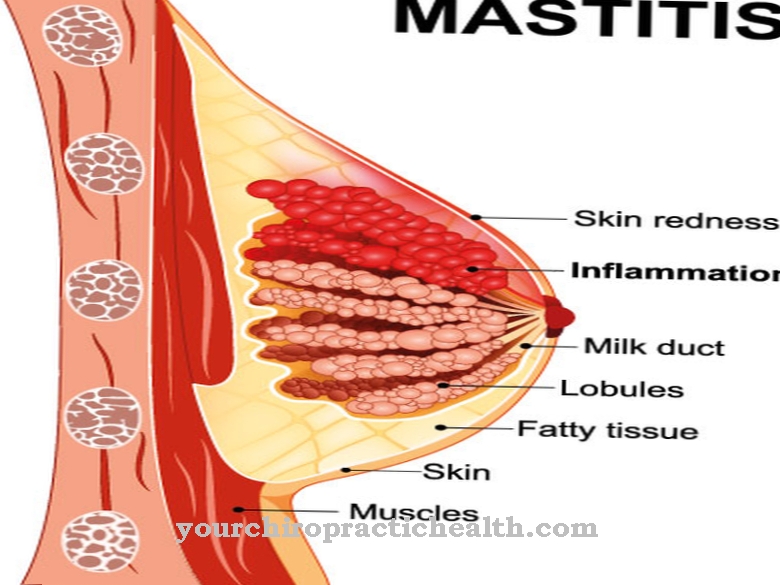
.jpg)

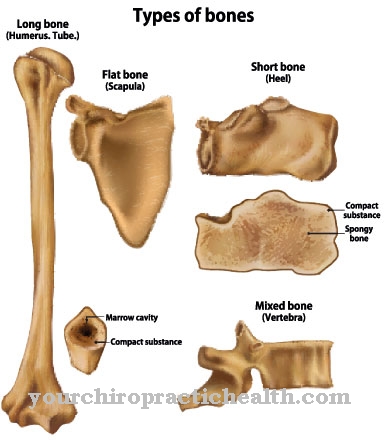




.jpg)



.jpg)



.jpg)


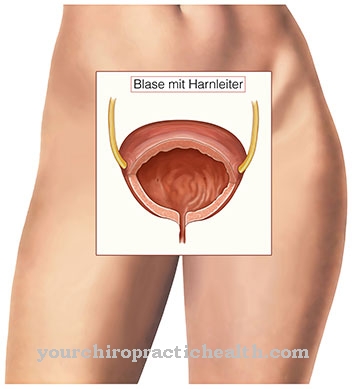

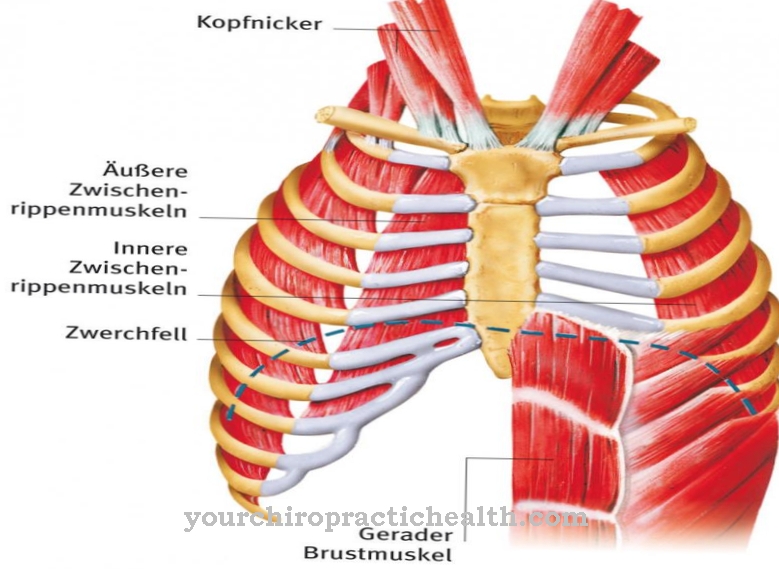

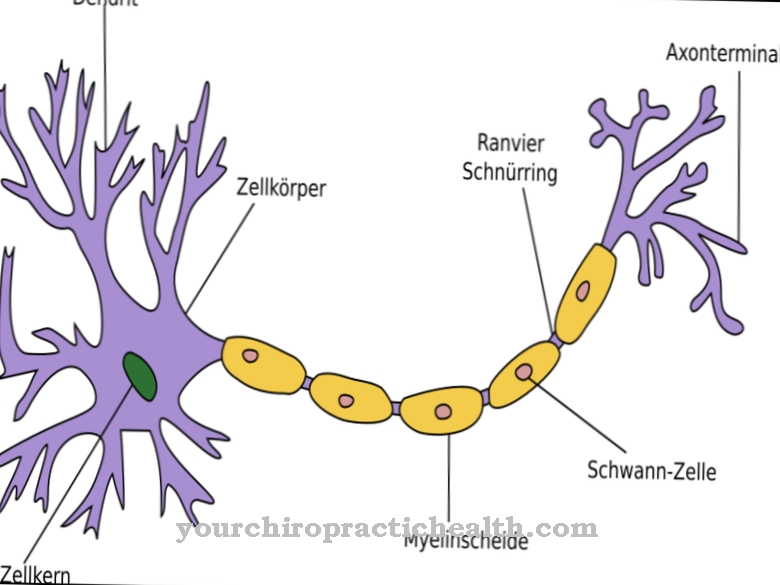
.jpg)
